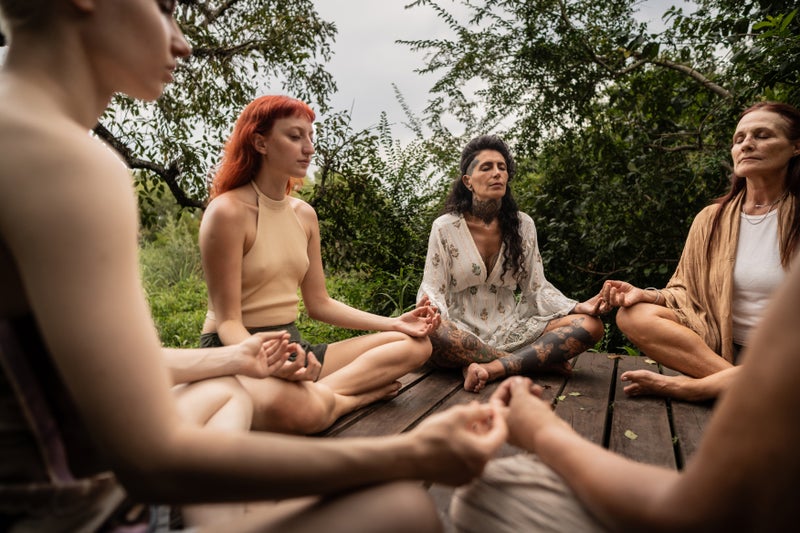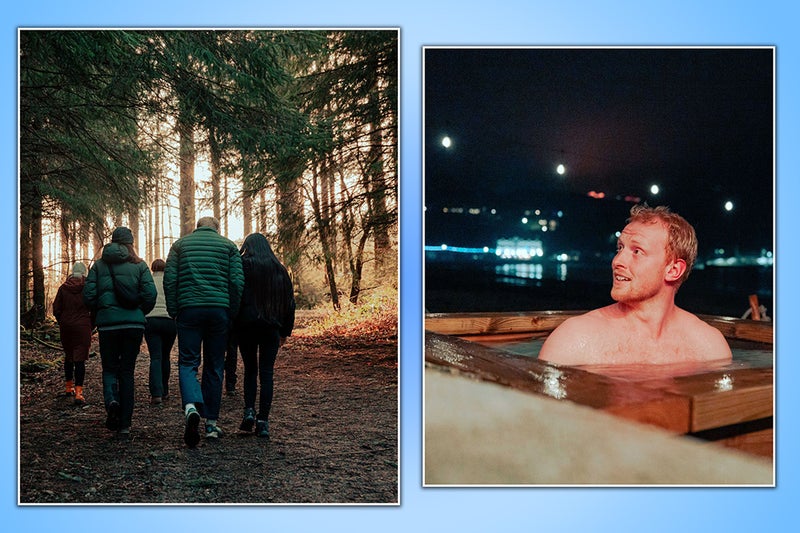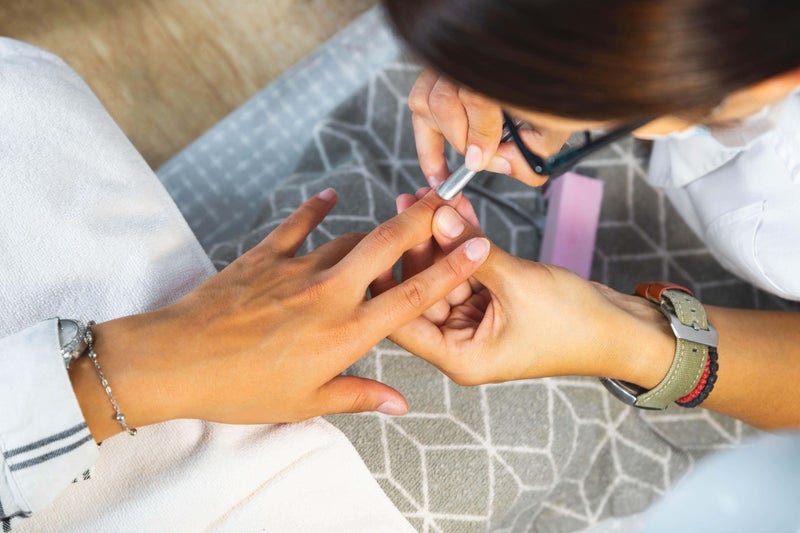Last spring, I found myself in the surreal position of taking enormous doses of so-called magic mushrooms with a group of women I’d known for less than 48 hours. We were in the Netherlands where, unlike the UK, magic mushrooms are legal if they’re taken in truffle form. But we weren’t prepping for a hedonistic night out. Instead of downing negronis, shimmying into sequins and hitting the dancefloor, we were utterly sober, dressed in leisurewear and lying prone on gym mats.

For our consumption of frankly mind-blowing amounts of psychedelics was done for one purpose only – therapy, and specifically to find for ourselves a new path in life. And for a directionless 51-year-old divorcee like me, it was a revelation. Simultaneously brutal and joyful, it was one of the most meaningful experiences I’ve ever had. The claims are big for ‘psychedelic-assisted therapy’, as it’s called.
![[With prices starting at £4,835 for a five-day stay, Beckley Retreats in The Netherlands is an expensive option]](https://i.dailymail.co.uk/1s/2025/02/17/01/95270861-14403241-With_prices_starting_at_4_835_for_a_five_day_stay_Beckley_Retrea-a-9_1739755698247.jpg)
The idea is that it supercharges conventional psychotherapy by opening up the deepest recesses of the mind, so facilitating psychological exploration and growth. Various hallucinogens are used by practitioners: for me, it was psilocybin, the active ingredient in magic mushrooms, but there are other psychedelics like the South American brew ayahuasca, and the cactus San Pedro. Despite being illegal in the UK, therapy using psychoactives is booming in countries such as the Netherlands. And, in my experience, it’s forging a whole new following among middle-class women of a certain age, who are using it to get over the humps of midlife.
![[But you get what you pay for. Science-backed and highly-regarded, it's big on ensuring that therapeutic support is available before, during and after the 'trip']](https://i.dailymail.co.uk/1s/2025/02/16/18/95270865-14403241-image-a-6_1739729684578.jpg)
'Therapy using psychoactives is forging a whole new following among middle-class women of a certain age, who are using it to get over the humps of midlife,' writes Helen Jones. When I started getting divorced in 2020, aged 47, I realised my identity had been eroded by marriage, motherhood and menopause. Life had become demanding but ‘samey’, like being bounced around in an endless game of pinball. Dissatisfied and lost, I couldn’t stop my 13-year marriage from crumbling into an unsalvageable mess, while my child hacked away at the apron strings as an increasingly independent teen. It was a powerful combination that saw me both question my purpose in life and be jolted free of the fog of midlife.
A low semi-permanent hum of menopausal anger and ennui began to take hold and I felt an almost self-destructive urge to shake things up. Post-divorce, that started with me. Having thrown myself into dating, I realised I was finding fault with every man I met (most justified, some not) and avoiding any kind of deeper connection. My head spun with questions: why had my 13-year marriage failed? Was I a good enough mother? Why did I find relationships so hard?.
A date – ironically – told me about psychedelic retreats and how effective they were at helping to explore deep-rooted issues. It didn’t work out with him, but his idea left an impact. I dug around a bit, and for every scare story I found, there were hundreds more tales of life-affirming experiences. So, in May, I took the plunge. With a bellyful of anxiety and thrill, I headed to the Venwoude retreat, ten miles north of Utrecht, for a five-day stay. Would I fry my brain or find buried within it the answers to my questions? Would I lose myself and come back a different person – and would that be good or, well, very bad indeed?.
The eight other women on the retreat were there for a variety of reasons: calming the symptoms of ADHD, stemming anxiety, healing old wounds. For me, it was all about dealing with my menopausal rage and finding new ways to deal with relationships: the old, fractured ones; the draining, one-way friendships; those tainted by a lack of trust. And, of course, the new ones I very much wanted in the future.
At psilocybin retreats, magic mushrooms are called ‘medicine’, but the ‘caregivers’ administering them – chopped up and mixed with warm water, lemon juice and honey, to be eaten with a spoon – are wearing flowy white dresses, not white coats. And the quantities are large, a world away from the light giggly drop of ‘shroom juice’ currently the hottest thing at London dinner parties. I was given four grammes, not much less than the maximum dose allowable of five. This is not an amount you can easily ‘come down from’ when friends pop you in an Uber home, and it’s why you need experienced people around you. I had five ‘facilitators’: a medically-trained doctor, a ‘somatic therapist’ (someone who explores how emotions affect the body), a musician, yoga instructor and a shaman. Thankfully, nothing fazed them and their kindness was limitless.
In our ceremonies (the name given to what we might otherwise call a ‘trip’), which lasted between six to eight hours, we were encouraged to stay on or near our mats and not to interact with other participants. Even admiring nature was seen as ‘avoidance’, a distraction from the deep therapy work that could otherwise take place. It was not for the faint-hearted, however. One participant thought she was dying during her ceremony. Another thought she was giving birth. We all cried buckets of tears.































